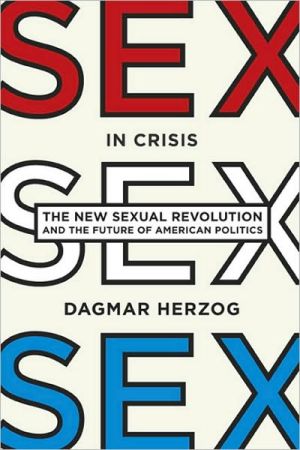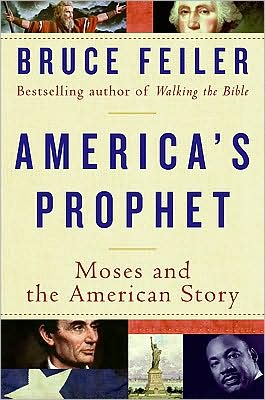Sex in Crisis: New Sexual Revolution and the Future of American Politics
The Religious Right has fractured, the pundits tell us, and its power is waning. Is it true – have evangelical Christians lost their political clout? When the subject is sex, the answer is definitively no.\ Only three decades after the legalization of abortion, the broad gains of the feminist movement, and the emergence of the gay rights movement, Americans appear to be doing the time warp again. It’s 1950s redux. Politicians—including many Democrats—insist that abstinence is the only...
Search in google:
America is in the midst of a second sexual revolution-and this time, argues historian Dagmar Herzog, the love isn’t free. Publishers Weekly Herzog (Sex after Fascism) confronts how the religious right has controlled "the national conversation about sex," dictating everything from social attitudes to legislation and HIV prevention funding. "[Their] aim is to infuse with shame all sexual expression and experience outside of heterosexual marriage," she asserts, examining the writings of evangelical sex and marriage experts whose "brand of Christian porn" exalts married, monogamous sex while deploring homosexuality, pre- and extra-marital sex, pornography, masturbation and even idle fantasy. Herzog examines the global effects of the religious right's influence on domestic sexual policies, detailing the shift from sex education in schools and the proliferation of billion-dollar abstinence-only programs to the President's Emergency Plan for AIDS Relief, where an insistence on abstinence has been promoted abroad at the cost of billions of dollars in exchange for millions of lives that, she argues, might have been saved by at least an equal emphasis on condom use. This book is a disturbing, important and eloquent examination of one faith-cum-political movement's powerful-and pernicious-influence over human rights at home and abroad. (July)Copyright © Reed Business Information, a division of Reed Elsevier Inc. All rights reserved.
Ch. 1 Anxiety Nation 1Ch. 2 Soulgasm 31Ch. 3 Trial and Error 61Ch. 4 Saved from Sex 93Ch. 5 Missionary Positions 127Ch. 6 In Pursuit of Happiness 163Acknowledgments 183Notes 187Index 233
\ Publishers WeeklyHerzog (Sex after Fascism) confronts how the religious right has controlled "the national conversation about sex," dictating everything from social attitudes to legislation and HIV prevention funding. "[Their] aim is to infuse with shame all sexual expression and experience outside of heterosexual marriage," she asserts, examining the writings of evangelical sex and marriage experts whose "brand of Christian porn" exalts married, monogamous sex while deploring homosexuality, pre- and extra-marital sex, pornography, masturbation and even idle fantasy. Herzog examines the global effects of the religious right's influence on domestic sexual policies, detailing the shift from sex education in schools and the proliferation of billion-dollar abstinence-only programs to the President's Emergency Plan for AIDS Relief, where an insistence on abstinence has been promoted abroad at the cost of billions of dollars in exchange for millions of lives that, she argues, might have been saved by at least an equal emphasis on condom use. This book is a disturbing, important and eloquent examination of one faith-cum-political movement's powerful-and pernicious-influence over human rights at home and abroad. (July)\ Copyright © Reed Business Information, a division of Reed Elsevier Inc. All rights reserved.\ \ \ \ \ Kirkus ReviewsHow the Religious Right has co-opted the debate on American sexuality. The current anxiety Americans feel about sex emanates from a pernicious script promulgated by religious conservatives such as President Bush and evangelical Christians, argues Herzog (History/CUNY Graduate Center; Intimacy and Exclusion: Religious Politics in Pre-Revolutionary Baden, 2005, etc.). The discovery of Viagra in 1998 and the rise of Internet pornography have "caused confusion about the nature of desire." Both men and women seem less interested in sex overall, focusing on its perils rather than its joys, displaying a sense of inadequacy about their bodies and shame about pleasure. Where did the love go? Herzog dutifully reads and watches mainstream media, in which she finds "a deliberate promotion of paranoia" about sexuality: reports on the latest technology for spying on wayward spouses, disapproving analysis of "emotional infidelity," dire warnings about sexually transmitted diseases. This climate has been fostered by an ideological assault, led by evangelical authors such as Stephen Arterburn and Fred Stoeker, that "play[s] on the imperfections and emotional confusion that so often accompany sex." The messages are ringing: anti-masturbation, pro-abstinence, anti-homosexuality. (Contrary to popular belief, the author notes, the Religious Right is pro-sex, as long as it's within the sanctions of marriage.) Herzog tracks the aggressive, increased federal funding for premarital abstinence programs, which focus on the "potential deadliness of sex," and the U.S. government's global export of abstinence and fidelity programs (at the expense of condom distribution) to countries dependent on American funding tofight HIV/AIDS. "Repression has been repackaged as promotion of mental health," she warns, and it threatens to undo many important achievements of the Sexual Revolution. Somewhat fevered in tone and eager to leap precipitously to conclusions, but Herzog champions essential moral concepts of self-determination and consent. Agent: Will Lippincott/Lippincott Massie McQuilkin\ \








